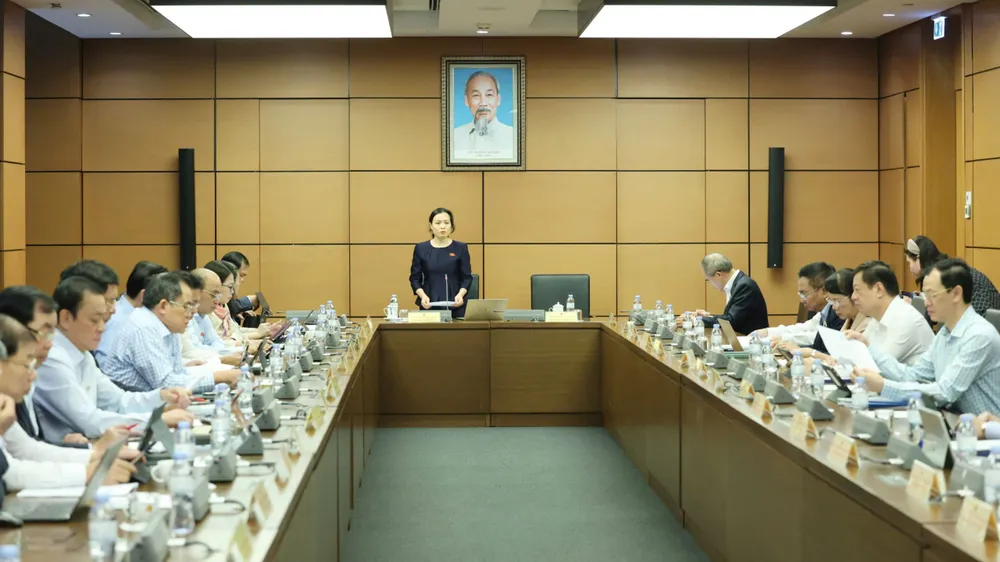
Previously, in the verification report on the draft Law on Journalism (amended), the Chairman of the National Assembly's Committee on Culture and Society, Nguyen Dac Vinh, stated that there were opinions suggesting the need to consider adding key multi-media press and media agencies in some localities or units that have built a reputation and have a certain position in journalistic activities.
This is an issue that many delegates are interested in discussing, along with the issue of publishing news on the internet.
Representative Bui Hoai Son ( Hanoi ) argued that the amended Press Law needs to include clearer mechanisms and policies to enable the press to operate as a cultural industry: from financial mechanisms based on commissioned work and bidding for public tasks, to allowing collaboration with domestic and foreign organizations and businesses; encouraging the formation of collaborative models and press conglomerates to increase operational efficiency.
At the Ho Chi Minh City National Assembly delegation meeting, many delegates expressed concern about the need to allow the establishment of leading multi-media press and media agencies in some localities.
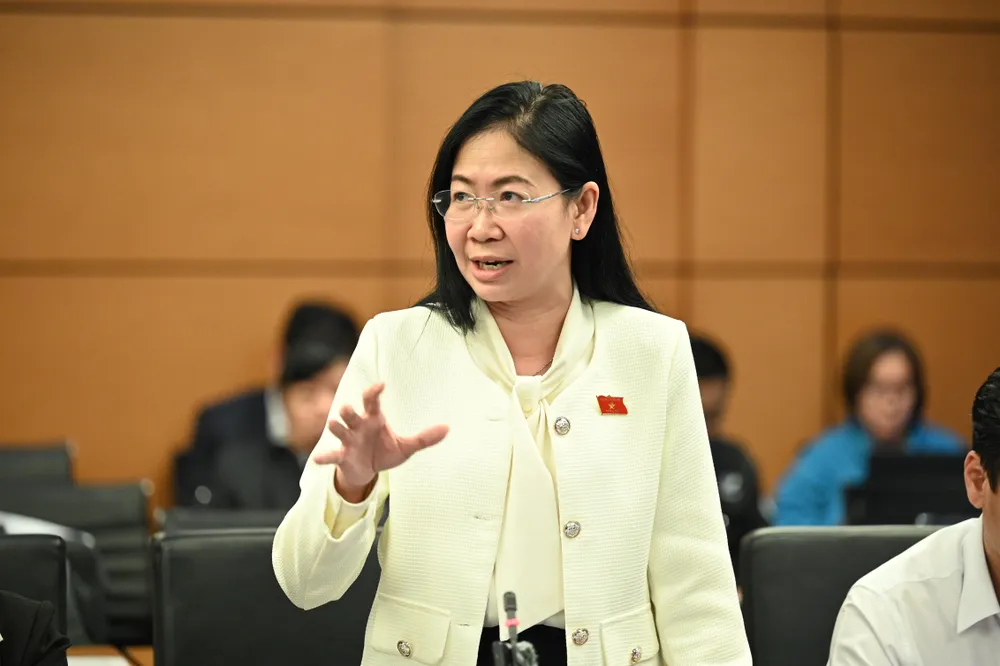
Retain major newspaper brands
Representative Phan Thi Thanh Phuong (Ho Chi Minh City) agrees with the correct policy of the Party and State on restructuring the system of press agencies towards streamlining, professionalism, and efficiency. However, restructuring should not mean uniformity, and should not inadvertently lead to the loss of valuable national press brands, affecting the effectiveness of information dissemination, critical analysis, and social inspiration. Therefore, the representative proposes researching and adding a separate clause to the draft amended Press Law regulating specialized press agencies or key multi-media press agencies.
Specifically, the delegate proposed allowing certain media outlets with strong brands, high reputation, complete financial autonomy, and influence extending beyond the local area to maintain independent legal status and register as leading multi-media news agencies.
In addition, the regulations clearly define the criteria for identifying specialized media outlets, such as having a minimum operating history of 20 years (possibly 30 or 40 years); and possessing significant social influence and prestige domestically or internationally. Simultaneously, the governing body (the City Party Committee or the People's Committee of Ho Chi Minh City or Hanoi) is responsible for state management regarding political direction, but allows the media to operate independently in terms of professional and financial matters, under the supervision of the central press management agency.
Based on the rapid development of digital technology, Representative Phan Thi Thanh Phuong also proposed supplementing the legal framework for the model of "media conglomerates" or "multimedia-focused media and communication complexes" in major centers such as Hanoi and Ho Chi Minh City.
According to the delegate, Ho Chi Minh City has the full capacity, conditions, and personnel to build a model of a leading multimedia press agency, becoming the press and media center of the Southern region. Similarly, Hanoi will also do well in this area in the Northern region. Delegate Phan Thi Thanh Phuong proposed that the National Assembly consider adding a separate law stipulating a special mechanism for these two major cities, allowing them to pilot a model of a leading multimedia press and media conglomerate or corporation.
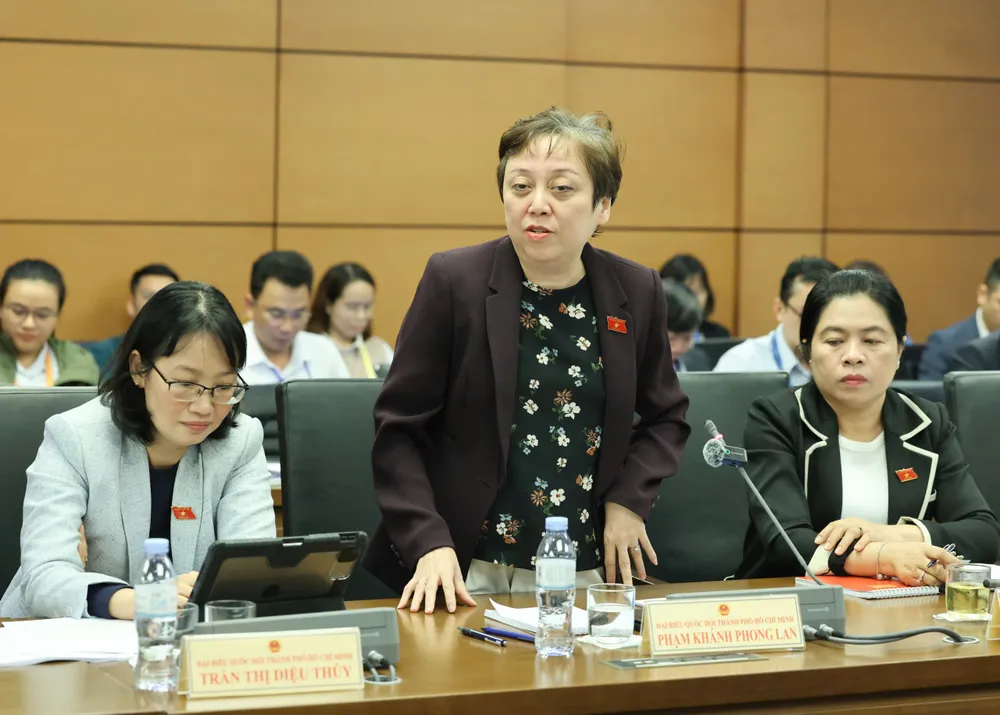
Representative Pham Khanh Phong Lan (Ho Chi Minh City) commented that the current media environment is fiercely competitive with social media, but the draft still contains many points that are administrative in nature. According to the representative, all control measures only work with mainstream media, inadvertently creating an unhealthy competitive mechanism with social media.
For example, when someone writes something and posts it on social media, it spreads very quickly, even widely, while getting it published in a mainstream newspaper requires a specific process; social media also freely copies information from mainstream newspapers; and a segment of the population has a preference for quickly receiving "hot" information even without verification... According to the delegate, it is necessary to create conditions for the development of journalism and not allow it to be hindered.
Representative Pham Khanh Phong Lan agreed with the proposal of the reviewing agency to consider establishing a leading multi-media press agency in major localities such as Ho Chi Minh City and Hanoi, as these two places have many large press agencies.
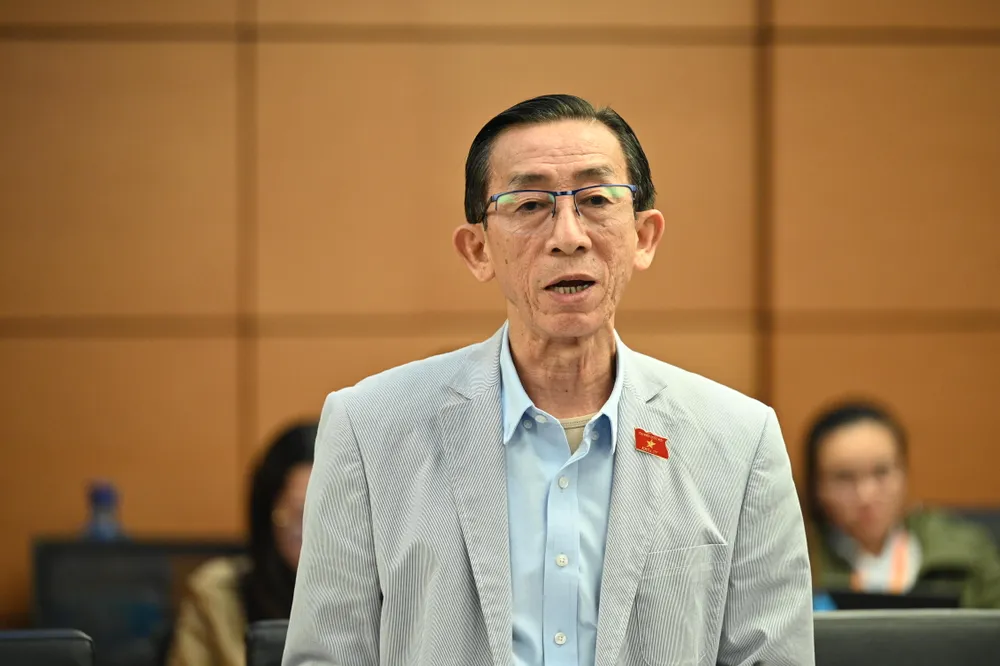
Representative Tran Hoang Ngan (Ho Chi Minh City) also suggested researching and adding regulations on the establishment of leading multimedia press agencies – a type of journalism quite common worldwide; clearly defining the conditions for establishing these strong press agencies, especially in large localities like Ho Chi Minh City and Hanoi; and proposing to preserve large, reputable press brands with readers such as Saigon Giai Phong Newspaper and Tuoi Tre Newspaper… Representative Tran Hoang Ngan also emphasized respecting citizens' right to freedom of expression in the press.
There must be sanctions and regulations to protect victims of fake news.
Representative Pham Trong Nhan (Ho Chi Minh City) argued that the development of AI is creating a need to redefine the role of journalism. According to him, the draft law only addresses the issue of media organizations and journalists, while the impact of AI on journalism has not been thoroughly discussed. In reality, AI can create journalistic works that are "realistic," complete with characters and authors. Therefore, the representative proposed adding provisions regarding journalistic works using AI, along with regulations on the ethics of journalists using AI in their professional activities.
The delegate also argued that there needs to be a mechanism to protect the rights of information recipients, as there is currently too much fake information affecting social trust. There must be sanctions and regulations to protect victims of fake news, including the right to request corrections, removal of false information, and compensation.
Source: https://www.sggp.org.vn/de-xuat-thi-diem-thanh-lap-co-quan-bao-chi-truyen-thong-chu-luc-da-phuong-tien-o-tphcm-ha-noi-post819589.html













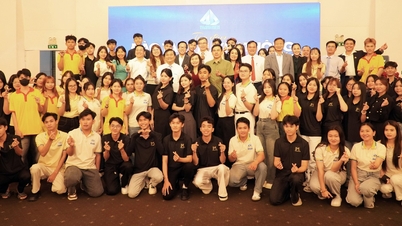

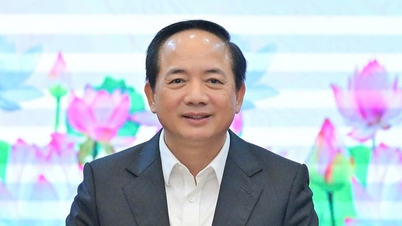


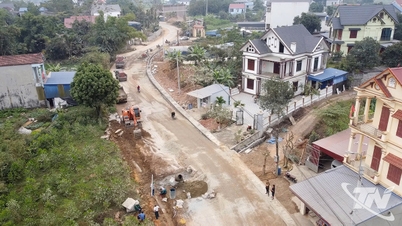


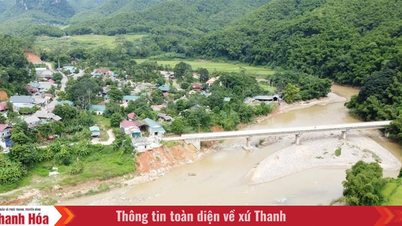

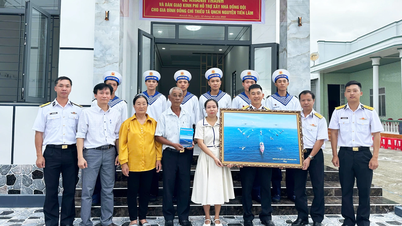


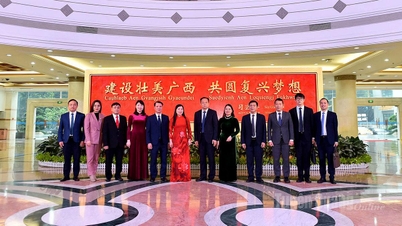
































































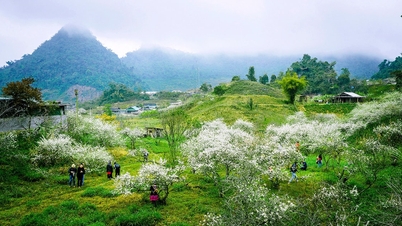


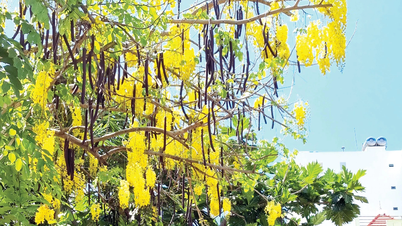

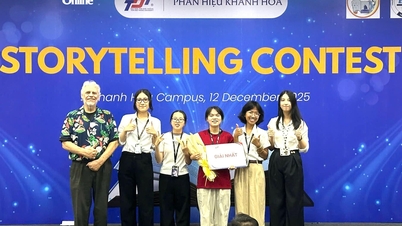
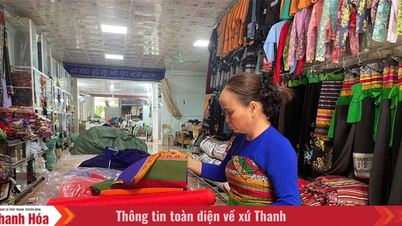













Comment (0)